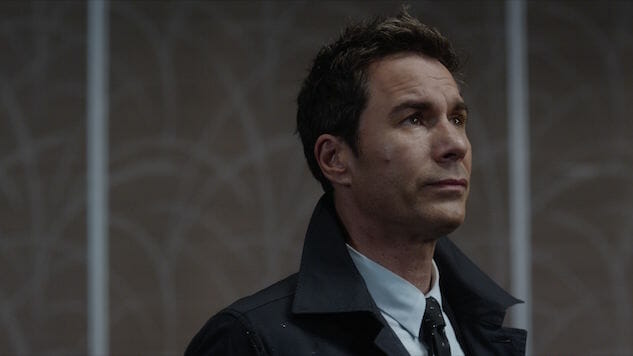The Meditative Science Fiction of Netflix’s Travelers Rewards the Patient
Photo: Courtesy of Netflix
”Huh. I kinda thought that would be a bigger deal.” —Special Agent Grant MacLaren/Traveler 3468, “Protocol 6”
Here is what Netflix’s Travelers, the second season of which dropped on December 26, is about: In a distant future decimated by the sins of the twenty-first century’s unsustainable voraciousness, technology advances to the point that human consciousnesses can be sent back in time to take up residence in the bodies of adults at the moment of their natural historic death. Volunteers from this unseen distant future train to become these metaphysical “travelers” and return to “the 21st” in tactical teams of five regular Joes (and Josies) to undertake covert missions that might course-correct, in ways small to large, humanity’s future. When they are not on a mission, they are tasked to live as unremarkable a life as possible in the body of their host—an extra challenge for those who arrived in the bodies of heroin addicts or abused partners or the mentally disabled. Travelers are often mission-less for long stretches of time, and even when they do have a mission, its context and its ultimate effect on the future are rarely communicated. They are small cogs in a vast and ever-changing machine.
-

-

-

-

-

-

-

-

-

-

-

-

-

-

-

-

-

-

-

-

-

-

-

-

-

-

-

-

-

-

-

-

-

-

-

-

-

-

-

-








































